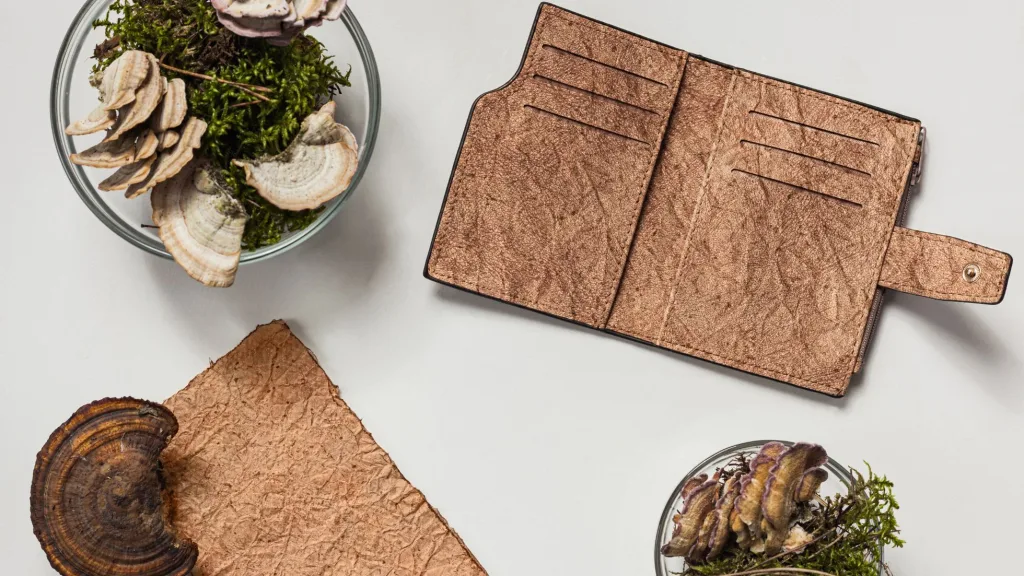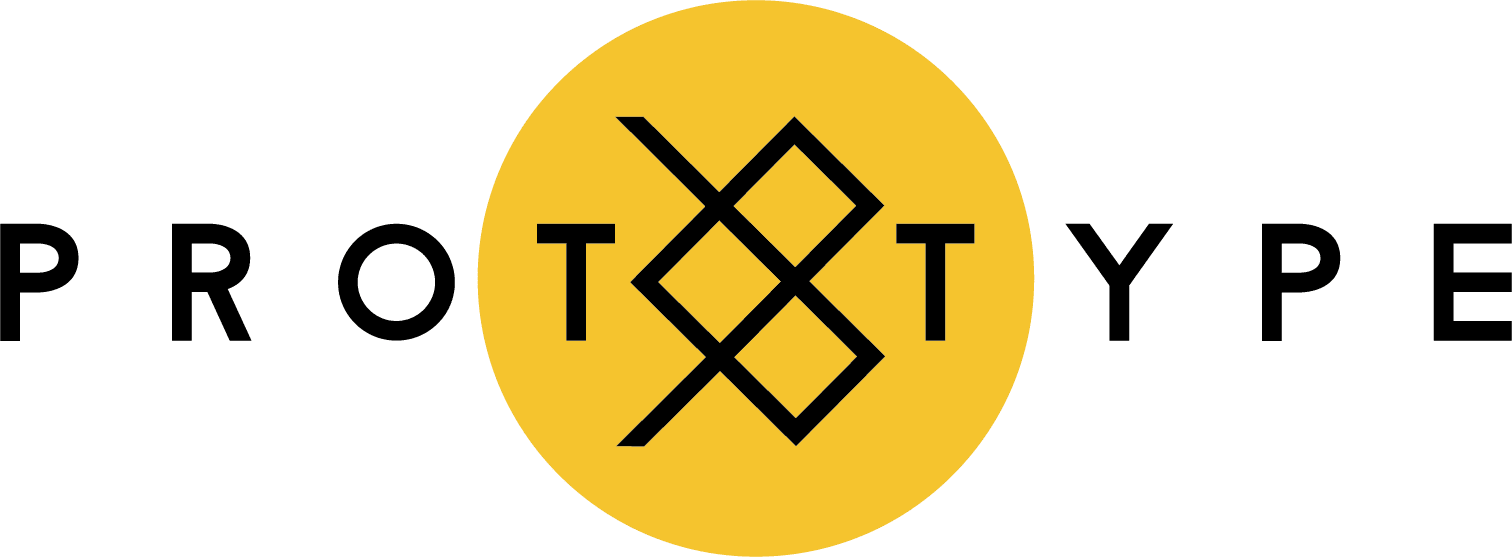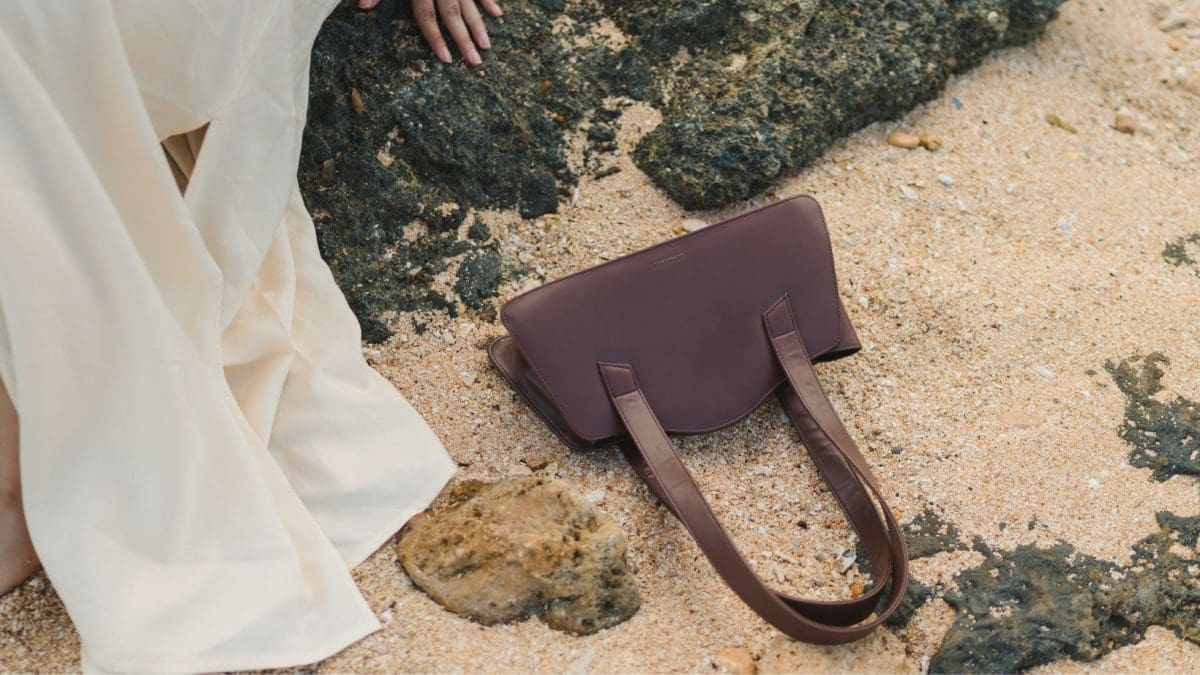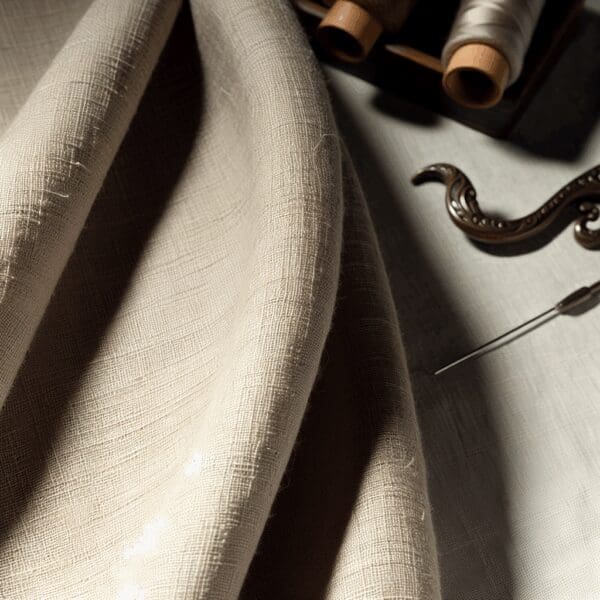Unless you’ve been under a rock for the last 20 years, you’ve probably seen something promoting itself as being made from “vegan leather”. And if you’re the curious type, you’ve probably wondered, “What is vegan leather anyway?”
The word vegan conjures up images of health and sustainability. A raw salad of organic ingredients. Nutritious, wholesome, and, conveniently… expensive. So with this idea in mind, we consider vegan leather. It must be made of some kind of organic material, surely? Plant-based, I’m guessing, sustainable and environmentally friendly. It only stands to reason, right?
Wrong!
What is vegan leather?
Contrary to popular belief, vegan leather isn’t some kind of eco-friendly, organic product. In fact, most is made from plastic! Vegan leather (also known as faux leather) is a man-made material typically made from polyurethane or polyvinyl chloride (PVC). It looks and feels like real leather but without any animal products — hence the term “vegan”! But to most people this truth reads as something of a betrayal. So, while the cows are probably quite satisfied with the arrangement, the reality of vegan leather is far less eco-friendly and sustainable than the name would imply.
The benefits are obvious — no animals were harmed in the making of vegan leather so you can feel good about using it in your designs. But if you’re concerned about the welfare of animals, you likely are, or should be, also concerned about environmental sustainability.
Is vegan leather sustainable?
Vegan leather is often considered a more sustainable alternative to traditional leather, but it depends on the material used to create it. Some vegan leathers are made from synthetic plastics such as PVC and PU, which are not considered environmentally friendly over their lifecycle. But, not all vegan leather is bad — there are some types that actually have environmental benefits too! For example, cork-based vegan leather uses cork waste from wine bottle corks which helps cut down on pollution and waste created by the wine industry. There are even companies who use recycled plastic bottles for their faux leather products which helps reduce overall plastic waste levels around the world. Other vegan leather materials, such as cork, pineapple leaf fibers, and apple peels are more even more sustainable and biodegradable. These materials are more environmentally friendly than traditional leather and don’t require the use of animal by-products in their production.

10 benefits of vegan leather vs. natural leather
- Vegan leather is more environmentally friendly than traditional leather, as it does not require the use of animal products or harm to animals.
- It can be made from recycled materials, and therefore helps to reduce waste and conserve natural resources.
- It is typically less expensive than traditional leather products, making vegan leather a great cost-saving choice for consumers.
- It is lighter in weight than traditional leather and therefore easier to transport and carry around with you.
- It is often softer and more comfortable than traditional leather, making for a more pleasant experience when wearing it.
- It can be produced in a variety of colors and textures, allowing for greater customization options when creating vegan fashion items.
- It requires little maintenance compared to traditional leather goods, as it can simply be wiped clean with a damp cloth if needed.
- It is waterproof and durable, making it an excellent choice for outdoor use as well as general wear-and-tear in everyday life.
- Vegan leather does not contain any of the odors associated with traditional leathers such as liming or tanning chemicals or other unpleasant smells which may cause allergic reactions in some people
- It is a cruelty-free option that allows you to be fashionable without harming animals in any way!
Final Verdict
If you want to use leather in your designs without harming any animals or contributing to pollution, then considering using vegan leather in your projects should be a serious option for you! Not only is it more affordable than real leather but it also has many practical benefits such as being easy to clean and maintain while still looking great over time. Plus, when you choose the right type of faux-leather material such as cork or recycled plastic bottles for your designs then you can do even more good for the environment. Whatever your reasons may be for wanting to incorporate vegan materials into your apparel business – just remember that not all faux-leathers are created equal. Be sure to research thoroughly before committing to any particular type of material. That way you can ensure that whatever you create will be both fashionable and sustainable at the same time!


